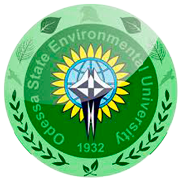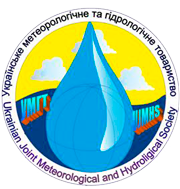Resource potential of municipal solid waste in Odesa Region
Abstract
Despite the widespread use of the term "municipal solid waste" (MSW), the main regulatory and legislative documents of Ukraine use the term "household waste". International practice also does not have a clear definition of the "municipal solid waste" concept, however, there are a number of related terms. Municipal solid waste is defined as a waste that is generated in the course of human activity, accumulated in residential buildings and social institutions and considered as unsuitable for further use at places of its generation. As for the related terms used in foreign and national practice, the term “household waste”, i.e. waste generated directly by households, is more appropriate. Municipal solid waste is a heterogeneous mixture that has a complex waste composition and its quantitative and qualitative characteristics are not constant and depend on characteristics of a certain country, region, city or town where it was generated, season and other factors. Growing volumes of municipal solid waste is one of the components of growing anthropogenic load that poses a threat to environmental safety of the country's regions and public health and negatively affects the state of our environment. The main methods of such solid waste management in Ukraine include landfilling, incineration, recycling and recovery. Out of the total annual waste volume generated on the post-Soviet territories, 93% are taken to landfills or dumpsites, 4% – incinerated, and only about 3% – recycled.
Therefore, creation and implementation of an effective system of solid waste management is an important task for ensuring environmental safety and sustainable development of the country's regions. Moreover, solid waste is a significant reserve for obtaining secondary material resources. According to the circular economy concept, almost all components of solid waste should be reused for production of new items. This will minimize negative impact on the environment and allow rational use of natural resources. The article analyses the current state of municipal solid waste management system in Odesa Region and assesses resource value of such waste. Secondary raw materials worth of almost UAH 1.4 million can be produced annually from the total flow of municipal solid waste in Odesa Region. And this figure does not take into account liquidity of food and other waste. After establishing an effective food and other organic waste management system, such amount may be significantly increased. Separation of resource-value components from the total solid waste flow and their subsequent use will help to reduce technogenic load on the environmental natural components and improve the overall environmental situation in Odesa Region.
References
United Nations Environment Programme (2011). Waste: Investing in Energy and Resource Efficiency - Towards a Green Economy: Pathways to Sustainable Development and Poverty Eradication. Available at: https://wedocs.unep.org/20.500.11822/22012. (Accessed: 1 November 2023).
Metodychni rekomendatsii povodzhennia z vidkhodamy [Recommendation for waste management]. Available at: https://drive.google.com/file/d/1xCVpu5i7K8FkaT6CG7dLhMbI9KUbKbFb/view?fbclid=IwAR1pqwmSHXv1NguNuCNXBOligdpzzabNWlzQ4w4fFI–hr1DiuyQfQUu3OE (Accessed: 1 November 2023). (in Ukr.).
Derzhavnyi klasyfikator Ukrainy. Klasyfikator vidkhodiv DK 005-96. [State Classifier of Ukraine. Waste classifier DK 005-96. State Committee of Ukraine for Standardization, Metrology and Certification]. Available at: http://plast.vn.ua/DK005-96.html (Accessed 25 September 2023) (in Ukr.).
Zakon Ukrainy «Pro upravlinnya vidkhodamy» vid 20.06.2022 № 2320-IX. Available at: https://zakon.rada.gov.ua/laws/card/2320-20 (Accessed 29 September 2023) (in Ukr.).
Natsionalna stratehiia upravlinnia vidkhodamy v Ukraini do 2030 roku [National waste management strategy in Ukraine until 2030]. Available at: https://zakon.rada.gov.ua/laws/show/820-2017-%D1%80#Text (Accessed 29 September 2023) (in Ukr.).
United Nations Organization Glossary of Environment Statistics, Studies in Methods (1997). United Nations publication: New York, Series F, № 67.
Garkushenko, O.N. (2014). [Legal provision of regulation of the field of solid household waste management in Ukraine]. Ekonomika ta derzhava [Economy and the state], 8, pp. 37-41. (in Ukr.)
Safranov,T.A., Shanina, T.P. & Prykhodko, V.Iu. (2018). Klasyfikatsiia tverdykh pobutovykh vidkhodiv yak peredumova formuvannia systemy povodzhennia z nymy v rehionakh Ukrainy [Classification of municipal solid waste as a prerequisite for the development of a waste management system in the regions of Ukraine]. Dnipro: Bila K.O. (in Ukr.)
Garkushenko, O.N. (2014). Regulation of the solid household wastes generation and treatment in Ukraine: guidelines and priorities. Ekonomika promyslovosti [Еconomy of industry],1, pp. 107-117.
Shushliakov, O.V., Shushliakov, D.O. & Proskurnia, M.I. (2011). [Waste disposal as a factor in increasing environmental efficiency and safety of life activities of the population]. Svit dovkillia [The world of the environment], 19, pp. 11–13. (in Ukr.).
Jensen, J.K. Pesticide Waste Management Technology and Regulations. (1992). ACS Symposium Series 510. American Chemical Society, Washington, DC, pp. 20–28.
Rezultaty doslidzhennia morfolohichnoho skladu tverdykh pobutovykh vidkhodiv Lvova [Results of the study of the morphological composition of solid household waste in Lviv]. Available at: https://zerowastelviv.org.ua/rezultaty-doslidzhennya-morfologichnogo-skladu-tverdyh-pobutovyh-vidhodiv-u-osbb-lvova/ (Accessed 29 September 2023) (in Ukr.).
Semko, P.P. (2019). Realii spivrobitnytstva biznesu ta orhaniv mistsevoho samovriaduvannia v haluzi povodzhennia z TPV v Ukraini ta napriamy pokrashchennia sytuatsii [The realities of cooperation between business and local self-government bodies in the field of solid household waste management in Ukraine and directions for improving the situation]. Available at: http://greenchamber.org.ua/files/files/2019/TBO/BUSINESS%20REALITIES.pdf (Accessed 29 September 2023) (in Ukr.).
Tverdi pobutovi vidkhody v Ukraini: potentsial rozvytku. Stsenarii rozvytku sektora povodzhennia z tverdymy pobutovymy vidkhodamy [Solid household waste in Ukraine: development potential. Scenarios of the development of the solid household waste management sector]. Available at: https://documents1.worldbank.org/curated/en/689821468337804553/pdf/Municipal-Solid-Waste-in-Ukraine-Development-Potential.pdf (Accessed 29 September 2023) (in Ukr.).
Barinov, M.O., Oleksiievets, I.L., Rodnaia, D.V. et al. (2021). Praktychni aspekty upravlinnia vidkhodamy v Ukraini: posibnyk [Practical aspects of waste management in Ukraine: manual]. Kyiv : Polihraf plius. (in Ukr.).

This work is licensed under a Creative Commons Attribution 4.0 International License.





